
-
Find the right food for your petTake this quiz to see which food may be the best for your furry friend.Find the right food for your petTake this quiz to see which food may be the best for your furry friend.Featured products
 Hill's Science Diet Adult Oral Care Chicken, Brown Rice & Barley Recipe Dog Food
Hill's Science Diet Adult Oral Care Chicken, Brown Rice & Barley Recipe Dog FoodClinically proven kibble technology to reduce plaque & tartar build-up
Shop Now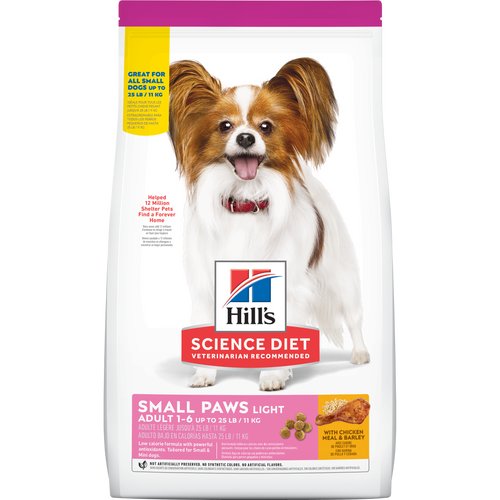 Adult Light Small Paws with Chicken Meal & Barley Dog Food
Adult Light Small Paws with Chicken Meal & Barley Dog FoodLow calories for less active small & mini dogs
Shop Now Adult Perfect Digestion Salmon, Whole Oats, and Brown Rice Recipe Dog Food
Adult Perfect Digestion Salmon, Whole Oats, and Brown Rice Recipe Dog FoodScience Diet's breakthrough nutrition supports ultimate digestive well-being & healthy microbiome
Shop NowFeatured products Adult 7+ Chicken Recipe cat food
Adult 7+ Chicken Recipe cat foodSupports energy level and beautiful fur in mature cats
Shop Now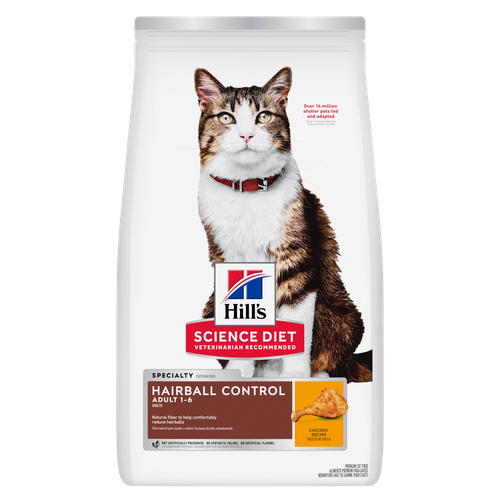 Adult Hairball Control Chicken Recipe Cat Food
Adult Hairball Control Chicken Recipe Cat FoodNatural fiber to help comfortably reduce hairballs
Shop Now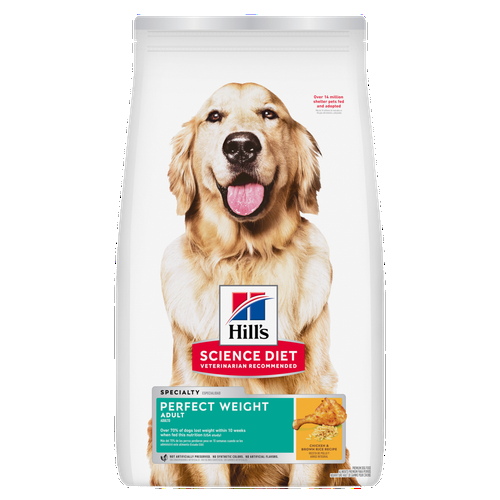 Adult Perfect Weight Chicken Recipe Dog Food
Adult Perfect Weight Chicken Recipe Dog FoodOver 70% of dogs lost weight within 10 weeks when fed this nutrition (USA Study)
Shop Now -
Dog
- Dog Tips & Articles
-
Health Category
- Weight
- Food & Environmental Sensitivities
- Urinary
- Digestive
- Joint
- Kidney
-
Life Stage
- Puppy Nutrition
- Adult Nutrition
- Senior Nutrition
Cat- Cat Tips & Articles
-
Health Category
- Weight
- Skin & Food Sensitivities
- Urinary
- Digestive
- Kidney
-
Life Stage
- Kitten Nutrition
- Adult Nutrition
Featured articles Moving With a Pet: A How-To Guide
Moving With a Pet: A How-To GuideDiscover helpful tips for moving with your pet including safety recommendations to keep in mind on moving day & pet behavior to watch for at your new home.
Read More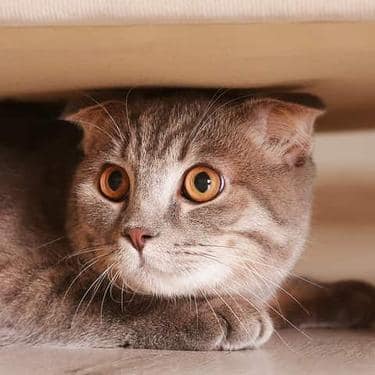 Keeping Pets Calm During Thunderstorms
Keeping Pets Calm During ThunderstormsIs your dog scared of thunder? Does your kitty dart under the bed at the first rumble? Learn a few tips for keeping your pets calm during the storm.
Read More How to Reduce Your Pet's Carbon Paw Print
How to Reduce Your Pet's Carbon Paw PrintHeaded outside? How you and your pets engage with nature can affect the environment, so here are some quick tips for reducing your pet's carbon paw print.
Read More -


Feline infectious peritonitis, also known as FIP, is a rare and often fatal disease. Because many cats carry the virus that causes FIP in cats, it's important to know about this disease if you're a cat parent.
What Is Feline Infectious Peritonitis?
FIP is caused by a mutation of a coronavirus, a kind of virus that many cats carry though it rarely makes them sick. If the coronavirus your cat carries mutates, however, it can cause FIP. Fortunately, mutations rarely occur and the incidence of FIP is low.
The regular coronavirus lives in a cat's gut and is shed in their feces. Cats become infected with it if they accidentally ingest the virus. If the virus mutates into the form that causes FIP, however, it moves from the gut to the white blood cells and is no longer contagious.
Scientists aren't sure what causes the virus to mutate into a lethal form, but some believe that it has to do with a cat's specific immune system response. Additionally, it is not believed to be a zoonotic virus, meaning that it is not infectious to humans.
It is worth noting that this is not the same coronavirus that is linked to the COVID-19 pandemic. Coronaviruses actually have many different strains, and they get their name from the fact that they are surrounded by a halo called a corona.
Risk Factors
Cats with weakened immune systems are at higher risk of developing FIP. This includes cats younger than 2 years old and cats with compromised immune systems — such as cats with herpes and cats who are sick from other viruses. The disease is much more common in households with multiple cats, in shelters and in breeding colonies. Purebred cats also appear to be at increased risk of FIP.
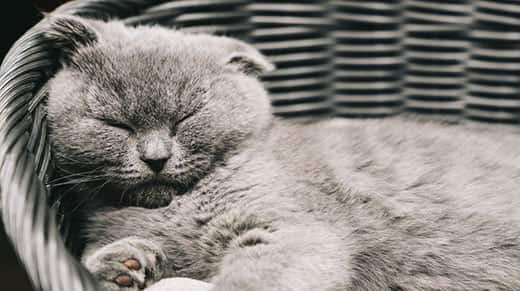
Signs & Symptoms of Feline Infectious Peritonitis
There are two forms of FIP in cats — the wet form and the dry form. Both share the following signs:
- Weight loss
- Loss of appetite
- Tiredness
- A recurrent fever that doesn't go away with antibiotics
The wet form of FIP causes fluid to build up in either the chest or abdomen, resulting in a distended belly and/or difficulty breathing. The dry form can cause vision-related or neurological problems, such as changes in behavior and seizures.
If your cat displays any of the signs of FIP, schedule an appointment with your veterinarian as soon as possible so they can evaluate your cat. Since some infectious diseases may cause the same signs as FIP, it's also a good idea to isolate your cat from any other pets in your household and to keep them inside until the vet sees them.


Tasty Tips
Diagnosis and Treatment of FIP in Cats
Unfortunately, FIP is tricky to diagnose. Most vets use a combination of exam findings, the cat's health history and lab tests to diagnose FIP. In veterinary hospitals, there are no routine lab tests that doctors can run to specifically diagnose FIP. However, if the vet takes samples of fluid from your cat's chest or abdomen, they can send them to a special laboratory to be tested for FIP viral particles.
Currently, there's no mainstream treatment or cure for FIP. Most vets consider the disease to be fatal. Research in the Journal of Feline Medicine and Surgery, however, shows the extremely promising treatment of FIP with nucleoside analogs, a new antiviral drug treatment. Further studies are needed to assess the safety and efficacy of this treatment.
How to Prevent FIP in Cats
Because having a strong immune system protects cats from FIP, the best way you can help prevent the disease is by supporting their immune system. This includes:
- Feeding them a complete and balanced cat food
- Providing them with daily exercise and mental stimulation
- Taking them to the vet for regular checkups, vaccinations and deworming
- Addressing any disease early on — including obesity and dental disease
- If you have multiple cats, avoiding overcrowding by providing each cat with a minimum of 18 square feet and their own food and water bowls, litter boxes, toys and resting places
- Keeping food and water bowls away from the litter box
- Keeping your cat indoors only, or only letting them out on a leash or in an outdoor enclosure, like a catio.


Dr. Sarah Wooten graduated from UC Davis School of Veterinary Medicine in 2002. A member of the American Society of Veterinary Journalists, Dr. Wooten divides her professional time between small animal practice in Greeley, Colorado, public speaking on associate issues, leadership, and client communication, and writing. She enjoys camping with her family, skiing, SCUBA, and participating in triathlons.
Related products

Over 70% of dogs lost weight within 10 weeks when fed this nutrition (USA Study)
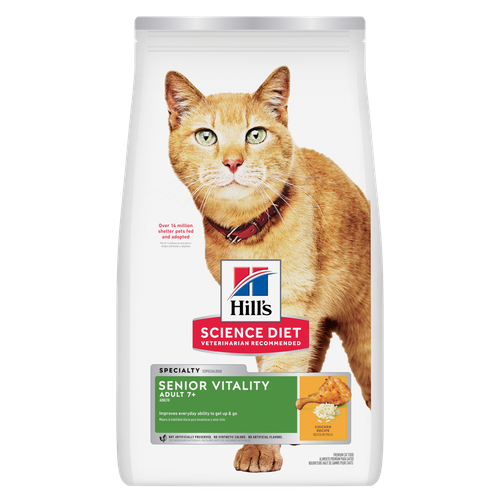
Improves Everyday Ability to Get Up & Go

Supports energy level and beautiful fur in mature cats

Natural fiber to help comfortably reduce hairballs
Related articles
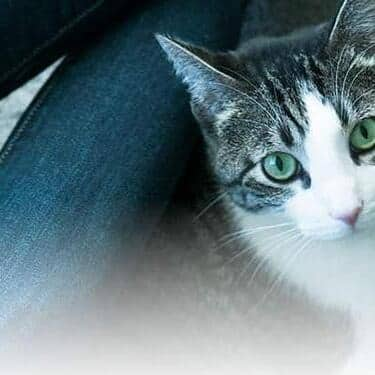
Brushing your cat's teeth is just as important as brushing your own. Learn signs or oral health problems in your cat and how to avoid them.
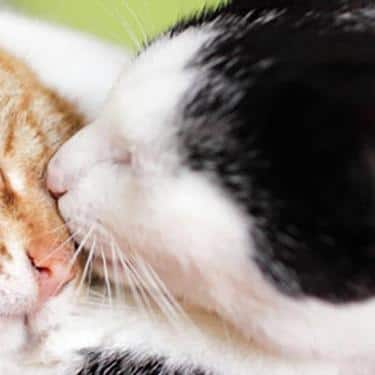
Learn the different factors that might be contributing to your cat's weight gain, and how bigger doesn't always mean better.

What is the best food for an overweight cat? Learn all about weight control food for cats, including what's in it and how it works.

Discover how to identify cat sensitive skin and what you can do to help your cat thrive from head to paw.

Put your cat on a diet without them knowing
Our low calorie formula helps you control your cat's weight. It's packed with high-quality protein for building lean muscles, and made with purposeful ingredients for a flavorful, nutritious meal. Clinically proven antioxidants, Vitamin C+E, help promote a healthy immune system.
Put your cat on a diet without them knowing
Our low calorie formula helps you control your cat's weight. It's packed with high-quality protein for building lean muscles, and made with purposeful ingredients for a flavorful, nutritious meal. Clinically proven antioxidants, Vitamin C+E, help promote a healthy immune system.

